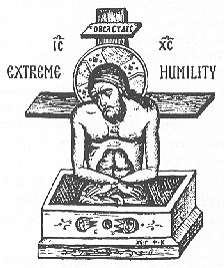 There is a belief prevalent among many religious folk that "things" are evil, that the world and the flesh are devilish, that our appetites wage war against our spirit and must be extinguished. These convictions find root in Manichaeism and, in due season, can blossom into asceticism -- either that or a major guilt trip. In rare cases, rigid forms of abstinence, isolation and even physical suffering is endured to reach some form of nirvana or achieve spiritual purity.
There is a belief prevalent among many religious folk that "things" are evil, that the world and the flesh are devilish, that our appetites wage war against our spirit and must be extinguished. These convictions find root in Manichaeism and, in due season, can blossom into asceticism -- either that or a major guilt trip. In rare cases, rigid forms of abstinence, isolation and even physical suffering is endured to reach some form of nirvana or achieve spiritual purity.Having passed through stages of both sensual overload and self-inflicted martyrdom, I found G.K. Chesterton's summation succinct:
That "God looked on all things and saw that they were good" contains a subtlety which the popular pessimist cannot follow, or is too busy to notice. It is the thesis that there are no bad things, but only bad uses of things. If you will, there are no bad things but only bad thoughts; and especially bad intentions... [I]tis possible to have bad intentions about good things; and good things, like the world and the flesh have been twisted by a bad intention called the devil. But he cannot make things bad; they remain as on the first day of creation. The work of heaven alone was material; the making of a material world. The work of hell is entirely spiritual.
The quote's lifted from, "The Dumb Ox," Chesterton's bio of Saint Thomas Aquinas. Along the way, the author details more modern manifestations of the dreaded doctrine, taking aim at Calvinism:
The old Manicheans taught that Satan originated the whole work of creation commonly attributed to God. The new Calvinists taught that God originates the whole work of damnation commonly attributed to Satan. One looked back to the first day when a devil acted like a god, the other looked forward to a last day when a god acted like a devil. But both had the idea that the creator of the earth was primarily the creator of the evil, whether we call him a devil or a god.
That the ancient doctrine has many incarnations is beyond dispute. But associating Calvinism with the pagan worldview is a bit startling. Nevertheless, Chesterton's wit and lucid logic never cease to amaze me. But a guy who wears a monocle, sports an overgrown mustache and dons frumpy attire had better be smart.

3 comments:
I like Chesterton's quote.
I guess in my mind it boils down to personal accountability.
Except palmetto bugs. And mosquitoes. And those nasty little things that eat holes in my books. And Burger King french fries.
Those are bad. :)
Mir
Gosh ... it's always easier to blame someone or something else than it is to take responsibility for oneself, isn't it?!
Post a Comment